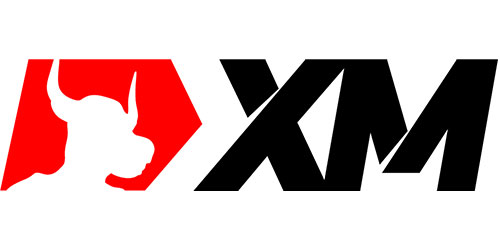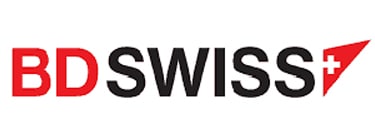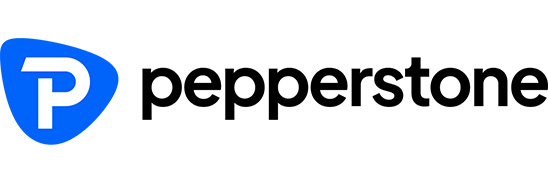 One of the easiest ways for investors to start growing their wealth lies in purchasing stocks. Anyone who has some disposable income and a brokerage account can easily purchase a piece of a company that is publicly traded.
One of the easiest ways for investors to start growing their wealth lies in purchasing stocks. Anyone who has some disposable income and a brokerage account can easily purchase a piece of a company that is publicly traded.
A stock refers to an ownership share in a company, and there are thousands of publicly traded companies to choose from, from different exchanges around the world. Even complete beginners with no prior experience in stock trading can now start growing their wealth.
Buying and selling stock is a way to profit from price fluctuations that occur every day. Traditional stock market investors, on the other hand, prefer to stick around for the long haul.
Investors who know how to time the market perfectly may make money quickly, but they also run the risk of losing a lot of money. Single business fortunes can increase faster than the market, but they can also plummet at a far faster rate than the overall market. Individual equities are seldom recommended by financial advisers unless clients can afford to lose their whole investment.
For stocks to become available for purchase, they must be listed and exchanged on exchanges, which are officially sanctioned locations where buyers and sellers can meet. For the convenience of the trader, these brokers will be able to purchase and sell stocks on behalf of the trader.
Both the New York Stock Exchange (NYSE) and the Nasdaq stock market are significant U.S. exchanges, while there are also other prominent exchanges such as the Johannesburg Stock Exchange (JSE), the London Stock Exchange (LSE), and others.
The OTC Pink Sheets, a less regulated OTC market, is an option for smaller firms with less liquid shares and smaller market capitalizations (sometimes referred to as penny stocks).
Investors who want to trade in the OTC market should do additional due diligence and be aware of the dangers associated before deciding.
To start buying stocks, the following steps must be followed:
- Choose an online brokerage account
- Research stocks in which to invest
- Decide on the number of stocks to purchase
- Choose your stock order type
- Grow your portfolio
Top 10 Forex Brokers
Broker
Rating
Regulators
Min Deposit
Leverage
Website
Top 10 Forex Brokers
Broker
Rating
Min Deposit
Leverage
1. Choose an online brokerage account.
Full-service brokers or cheap brokers are the two popular options available to investors today, among a few other options. All typical brokerage services are provided by full-service brokers, including retirement, healthcare, and financial planning. Most of their customers are quite wealthy. Therefore, they may charge a lot of money for their services.
In addition, these online brokers could a portion from transactions, a proportion of the investor's assets they manage, or even charge a monthly membership fee for their services. Full-service brokers will often require that investors make a minimum deposit amount of at least $25,000 to open an account.
Tradition dictates that their hefty costs are justified by their in-depth knowledge of their clients' requirements. However, at some point in the past, discount brokers were the exception rather than the rule.
Many discount online brokers provide a set-it-and-forget-it Robo-advisory service, as well as facilities allowing investors to choose and make their own trades. In modern times, internet brokers have added additional features to their websites and mobile applications, including instructional content.
Some bargain brokers do not have minimum deposit requirements, but some additional limitations and costs apply to accounts without a minimum deposit. This is something that all investors must consider before they enter the stock market.
An online brokerage account is the best way to purchase stocks, but it is not the only choice when it comes to purchasing stocks. An online brokerage account is an excellent location to start purchasing stocks if individuals consider themselves hands-on investor who enjoys studying businesses and learning about markets.
Many online brokerages provide both taxable and tax-deferred investment options. Investors can consider an IRA if investors want to invest in stocks to support their retirement since it provides tax benefits such as tax-deferred growth in addition to tax credits on the investor's tax return.
A taxable brokerage account is a good option if investors are looking to invest before retirement or have already capped their retirement funds. With no restrictions on the amount of money that the investor wants to deposit or when they can take assets, 401(k)s are a viable alternative to IRAs.
A margin account may also be offered by your preferred online brokerage. The brokerage lends you money to purchase shares via a margin account. For experienced investors, this allows them to acquire more shares of stock with a smaller amount of their own money in return for more fees and greater risk.
2. Research stocks in which to invest
On the stock market, there are hundreds of different publicly listed corporations. This adds to the difficulty of deciding which equities to purchase. One method to approach stock research is to choose a well-thought-out plan, such as purchasing growth firms or a specific portfolio that consists of different dividend stocks.
Growth stocks are those that represent firms that are experiencing significant and sustained growth in earnings or sales. They are often very new businesses with plenty of space to develop or businesses that serve rapidly growing markets.
Regardless of whether the shares of a growth company are pricey, investing in growth stocks implies that ongoing fast expansion will result in significant price increases over time.
Value stocks refer to shares that seek “bargain shares”, especially those that have either low price-to-earnings or those with price-to-book ratios. The objective is to acquire undervalued equities and hold them for the long term.
Dividend stocks provide a portion of their earnings to owners as dividends. When investors purchase dividend stocks, the objective is to generate a consistent stream of income from the investor's assets regardless of whether the stock's price rises or falls.
Additionally, some industries are more likely to pay dividends than others, especially utilities, telecommunications, and others. In addition, to make the process of selecting individual stocks easier, investors can use a stock screener, allowing them to identify stocks that they may want to purchase. However, despite the approach the investors choose, identifying the companies of which they want to purchase stock might be difficult.
Stock screeners assist investors in narrowing down an extensive list of investments by providing an infinite number of filters to exclude firms that do not suit the investor's specific criteria. Brokerage accounts have stock screeners, and several free ones are accessible online.
A stock screener enables the investor to select small-cap or large-cap stocks, as well as browse listings of firms with dropping share values and those with all-time highs. In addition, they often allow investors to search stocks according to their specific industry or the market sector, showing all companies under these filters.
Investors can also filter stocks according to their P/E ratio, which is an excellent method for identifying shares that are either over-or under-priced.
3. Decide on the number of stocks to purchase
Once investors have identified the shares that they wish to purchase, they must determine how much they can afford. When investors are just starting, they may not have significant amounts of capital start with. However, this is not an issue because investors can start with small capital. Shares range in prices, and investors also have the option of purchasing fractional shares.
The idea behind purchasing stocks is to grow wealth and to add to the investments over time, ideally at frequent intervals. One of the inherent issues with the stock market is that prices continuously fluctuate because of different driving factors.
Investors may have their eye on a stock that seems affordable today, and the price could have increased by the time the investor purchases it. This problem can easily be solved by applying dollar-cost averaging.
When investors place money into an investment frequently, they can pay less per share over time. It should be noted that dollar-cost averaging allows investors to start buying stock immediately instead of waiting for the initial balance to grow.
This reduces the chance of purchasing at an extremely high or low price because the investor is spreading their purchases out over a lengthy period. One thing that investors must avoid is placing their entire investment amount into a single stock. Diversification is something that all investors must use, allowing them to spread the risk across a wide range of stocks and companies.
This can be done by investing in index funds instead of individual stocks, where the investor places their capital in a fund that consists of low-cost and high-performing stocks.
4. Choose your stock order type
Before purchasing a stock, the investor must decide on the type of order that they want to use to complete their purchase. Two of the most common order types when purchasing stocks refer to a limit and a market order.
- When investors wish to purchase or sell their stock at a specified price, or even better, they can use a limit order. When making a purchase, the investor must decide how much they are willing to spend. The price that they are willing to accept when selling is known as the “minimum price.”
- Investors can use a Market Order if they wish to buy the stock immediately at the current market price. Market orders should be used with caution since certain securities do not trade often, and investors could end up with increased trading costs if they place a market order on these securities or stocks.
5. Grow your portfolio
The process of becoming a shareholder begins with the purchase of a stock. However, investors should continue monitoring their portfolios. In addition, investors should track the quarterly and yearly financial results of the companies in which they own stocks, in addition to staying abreast of developments in the industry.
As the company performs well, investors can allocate more capital towards their investment, subsequently adding more stocks to their portfolio as their investment grows.
Investors must note that it is normal for stocks to decline at some point, even if it is temporary. If investors understand the company in which they invested, they will know when it is time to buy more stocks or when to sell their stocks.
To reduce the risk of losing capital across the investment or trading portfolio, investors are urged to ensure that their portfolios are diversified across different companies, industries, and sectors.
There is a chance that a whole industry may be affected, as many were during the Covid-19 pandemic, or an individual firm could go bankrupt. Only a small percentage of the investor's overall investment capital should be invested in a single firm.
What is the best way to buy stocks?
The best way to buy stocks is through an online broker. When investors use brokers, they are given more control and flexibility. In addition, these brokers also feature fewer fees than other ways through which stocks can be purchased.
Buying stocks on the broker's website is a simple process once investors have opened and funded their accounts. A full-service stockbroker or purchasing straight from the corporation are other choices.
Where can I buy stocks?
Investors have a few options when it comes to buying stocks, this includes:
- Online brokers that allow self-directed stock trading and investment
- Full-service brokers that buy on behalf of the investor
- Direct stock purchase plans
- Robo-advisors and stock trading applications
Apart from a brokerage account, how else can I buy stocks?
Investors have the option of using direct stock purchase plans and Robo-advisors instead of brokerage accounts to purchase stocks.
However, not all companies participate in these plans, but some prominent companies do. Third parties tend to operate direct purchase programs instead of the companies themselves.
Computershare and American Stock Transfer & Trust Company are the two most often used administrators of direct buy plans (AST). Both businesses demand an extra cost for programs that include direct buying. By contrast, many internet brokers charge no charges on purchases and sales of stock.
Many direct-purchase schemes have gone out of favour because of the widespread availability of low- and no-fee internet brokerages. They may, however, let investors acquire shares in a certain firm at a tiny discount, which may help offset the costs they impose.
Robo-advisors are automated investment systems that analyze the trader's financial objectives, the time horizon for investing, and risk tolerance. When you sign up for a Robo-investor, the platform evaluates certain characteristics provided by the trader.
Based on the provided parameters, the Robo-advisor can invest the capital of the investor into a managed portfolio consisting of exchange-traded funds (ETFs) that is personalized to your requirements.
However, the disadvantage associated with Robo-investors is that they do not purchase individual stocks manually. Instead, investors purchase a portfolio of ETFs.
Is it necessary to use an online brokerage account when buying stocks?
No, it is not a necessity, but it is the best way to buy stocks, and it is a much cheaper option than direct purchase plans offered by third parties.
Investors can purchase stocks from full-service brokers, online brokers, stock trading applications, and direct purchase schemes.
Is buying stocks more profitable than forex trading?
No, buying stocks is not more profitable than forex trading. There is no clear conclusion between forex or stocks on which is more profitable than the other. If the goal is to make frequent but smaller profits using short-term strategies, forex trading is more profitable because of the high liquidity and volatility in the forex market.
However, for long-term investors who want to hold their positions for extended periods, the stock market is a more profitable option. The stock market is extremely well-regulated and a safer option that allows investors to grow their wealth over the long term.
Are stocks and shares the same?
The terms stock and share are used interchangeably, and it can mean the same, but there is some technical difference between them. Stocks refer to securities that represent ownership in a company.
When an investor purchases a stock, they are not lending the company money to operate. The investor is purchasing a certain percentage of ownership in the company. In exchange for doing this, the investor can earn a portion of earnings and assets.
A share is more direct and distinct security that revers to an individual unit of stock. For instance, an investor purchased stock in Google, which means that they invested in Google stock, and they now own a small part of the equity in Google.
If the investor claims to own a certain number of Goole shares, it indicates the precise number of ownership units that the investor has.
What is the difference between buying stocks and shares?
An ownership stake in a publicly-traded firm is represented by a share of stock. An individual share of stock is the most basic unit of currency for any given corporation. Equities and stocks are often used to describe ownership in many firms, whereas the plural word “shares” refers to individual units of ownership in a single company that can be counted.
Table of Contents













